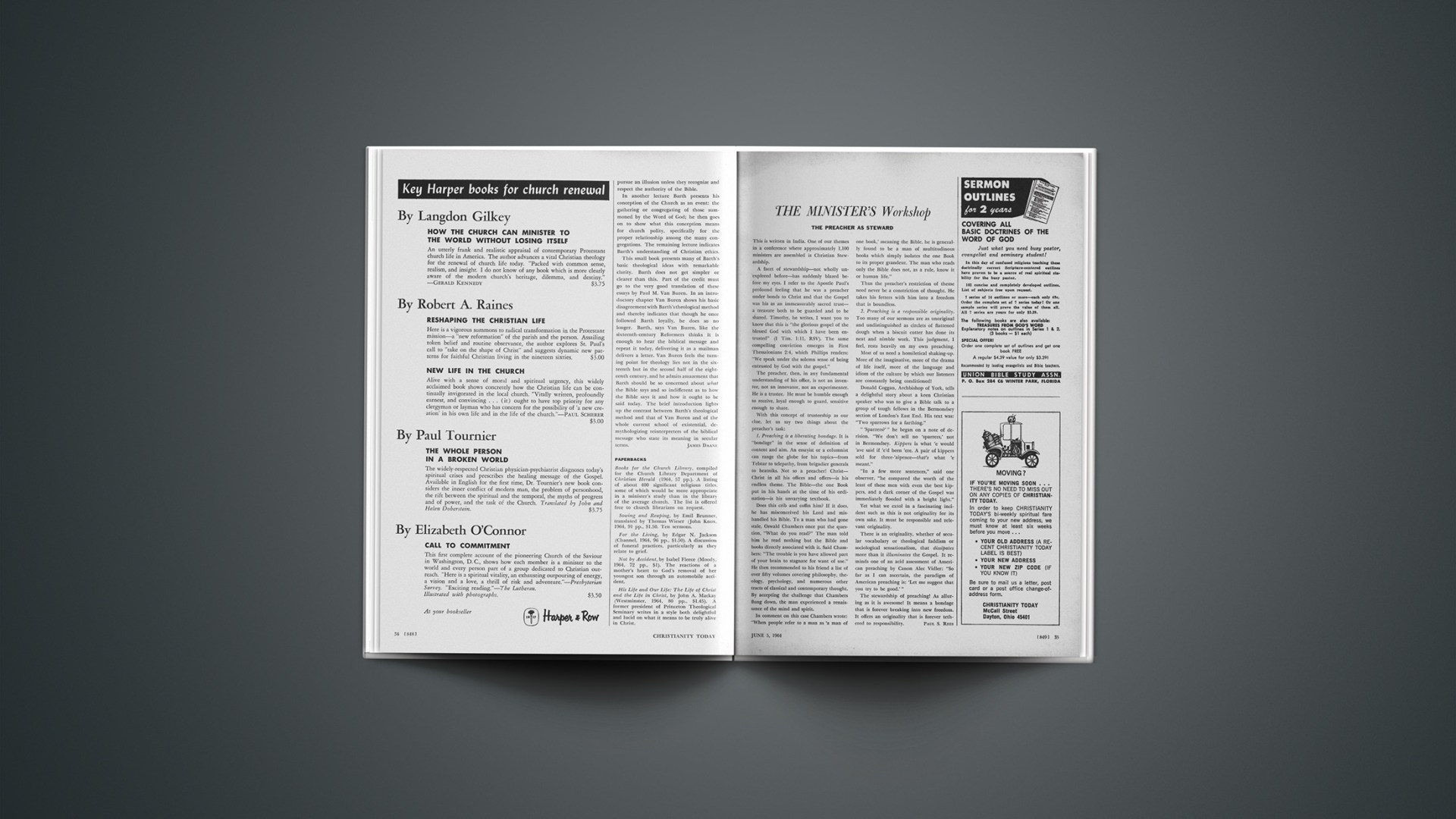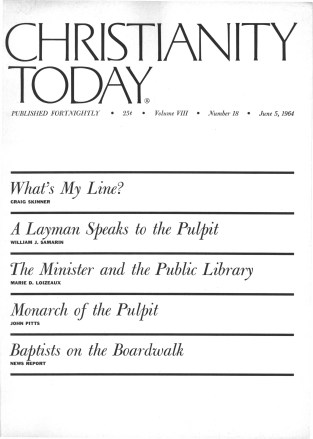This is written in India. One of our themes in a conference where approximately 1,100 ministers are assembled is Christian Stewardship.
A facet of stewardship—not wholly unexplored before—has suddenly blazed before my eyes. I refer to the Apostle Paul’s profound feeling that he was a preacher under bonds to Christ and that the Gospel was his as an immeasurably sacred trust—a treasure both to be guarded and to be shared. Timothy, he writes, I want you to know that this is “the glorious gospel of the blessed God with which I have been entrusted” (1 Tim. 1:11, RSV). The same compelling conviction emerges in First Thessalonians 2:4, which Phillips renders: “We speak under the solemn sense of being entrusted by God with the gospel.”
The preacher, then, in any fundamental understanding of his office, is not an inventor, not an innovator, not an experimenter. He is a trustee. He must be humble enough to receive, loyal enough to guard, sensitive enough to share.
With this concept of trusteeship as our clue, let us say two things about the preacher’s task:
1. Preaching is a liberating bondage. It is “bondage” in the sense of definition of content and aim. An essayist or a columnist can range the globe for his topics—from Telstar to telepathy, from brigadier generals to beatniks. Not so a preacher! Christ—Christ in all his offices and offers—is his endless theme. The Bible—the one Book put in his hands at the time of his ordination—is his unvarying textbook.
Does this crib and coffin him? If it does, he has misconceived his Lord and mishandled his Bible. To a man who had gone stale, Oswald Chambers once put the question, “What do you read?” The man told him he read nothing but the Bible and books directly associated with it. Said Chambers: “The trouble is you have allowed part of your brain to stagnate for want of use.” He then recommended to his friend a list of over fifty volumes covering philosophy, theology, psychology, and numerous other tracts of classical and contemporary thought. By accepting the challenge that Chambers flung down, the man experienced a renaissance of the mind and spirit.
In comment on this case Chambers wrote: “When people refer to a man as ‘a man of one book,’ meaning the Bible, he is generally found to be a man of multitudinous books which simply isolates the one Book to its proper grandeur. The man who reads only the Bible does not, as a rule, know it or human life.”
Thus the preacher’s restriction of theme need never be a constriction of thought. He takes his fetters with him into a freedom that is boundless.
2. Preaching is a responsible originality. Too many of our sermons are as unoriginal and undistinguished as circlets of flattened dough when a biscuit cutter has done its neat and nimble work. This judgment, I feel, rests heavily on my own preaching.
Most of us need a homiletical shaking-up. More of the imaginative, more of the drama of life itself, more of the language and idiom of the culture by which our listeners are constantly being conditioned!
Donald Coggan, Archbishop of York, tells a delightful story about a keen Christian speaker who was to give a Bible talk to a group of tough fellows in the Bermondsey section of London’s East End. His text was: “Two sparrows for a farthing.”
“ ‘Sparrers?’ ” he began on a note of derision. “We don’t sell no ‘sparrers,’ not in Bermondsey. Kippers is what e would ave said if e’d been ere. A pair of kippers sold for three-’aipence—that’s what e meant.”
“In a few more sentences,” said one observer, “he compared the worth of the least of these men with even the best kippers, and a dark corner of the Gospel was immediately flooded with a bright light.”
Yet what we extol in a fascinating incident such as this is not originality for its own sake. It must be responsible and relevant originality.
There is an originality, whether of secular vocabulary or theological faddism or sociological sensationalism, that dissipates more than it illuminates the Gospel. It reminds one of an acid assessment of American preaching by Canon Alec Vidler: “So far as I can ascertain, the paradigm of American preaching is: ‘Let me suggest that you try to be good.’ ”
The stewardship of preaching! As alluring as it is awesome! It means a bondage that is forever breaking into new freedom. It offers an originality that is forever tethered to responsibility.










